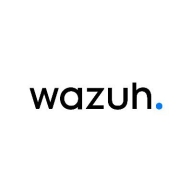

Cynet and Wazuh compete in the cybersecurity category, offering solutions for threat detection and management. Cynet appears to have the upper hand with its automated threat detection and 24/7 SOC services.
Features: Cynet offers automated threat detection, endpoint security, network visibility, and deception technology. Wazuh provides SIEM capabilities, file integrity monitoring, and compliance management with a focus on open-source integration.
Room for Improvement: Cynet needs to improve mobile support, reporting features, and third-party integrations. Wazuh requires better threat detection, integration capabilities, and improvements in scalability for large enterprises.
Ease of Deployment and Customer Service: Cynet offers easy deployment across cloud environments with positive real-time support. Wazuh provides flexibility through its open-source nature but relies heavily on community forums for support.
Pricing and ROI: Cynet has competitive subscription pricing with good ROI due to its automated features. Wazuh eliminates licensing costs being open-source, but users face potential support and infrastructure costs.
The return on investment with Cynet is pretty good, as it doesn't require a dedicated resource to manage, being highly automated.
I have seen value in security cost savings with Wazuh, as using proprietary EDR versions could save us substantial money.
Their SOC side support, when a threat is detected, is excellent.
My experience with the technical support of Cynet is excellent; they are just one click away.
Based on our needs, they schedule remote sessions and resolve the issues.
They responded quickly, which was crucial as I was on a time constraint.
We use the open-source version of Wazuh, which does not provide paid support.
The documentation is good and provides clear instructions, though it's targeted at those with technical backgrounds.
The solution is highly scalable.
We can deploy Cynet for 50,000 users, and we have deployed it at that scale, with the capability to scale higher to 100,000 users without any challenges.
Cynet is very scalable.
It can accommodate thousands of endpoints on one instance, and multiple instances can run for different clients.
Currently, I don't see any limitations in terms of scalability as Wazuh can still connect many endpoints.
Scalability depends on the configuration and the infrastructure resources like compute and memory we allocate.
Within six years of usage, we have not had any issues such as outages or downtime.
The stability of Wazuh is strong, with no issues stemming from the solution itself.
The stability of Wazuh is largely dependent on maintenance.
The indexer frequently times out, requiring system restarts.
There should be more options than deploying solely through group policy, as the assumption that GPO is working isn’t always the case.
Having a DLP feature would also add value.
Integration with local Active Directory, not only Azure AD, is a must.
Machine learning is needed along with understanding user behavior and behavioral patterns.
The integration modules are insufficiently developed, necessitating the creation of custom integration solutions using tools like Logstash and PubSub.
I think Wazuh should improve by introducing AI functionalities, as it would be beneficial to see AI incorporated in the threat hunting and detection functionalities.
I think the pricing of Cynet is fair and one of the better options in the market.
The price of Cynet is reasonable considering its features and support.
Cynet does not ask for additional costs for add-on features.
Wazuh is completely free of charge.
I would definitely recommend Wazuh, especially considering Fortinet's licensing model which is confusing and overpriced in my opinion.
Totaling around two lakh Indian rupees per month.
The valuable aspects of Cynet are its EDR and XDR components, which are available at a reasonable price point.
The most effective features of Cynet are its ransomware protection and lateral movement deception.
The SOAR function, deception, and forensics are very useful.
Wazuh is a SIEM tool that is highly customizable and versatile.
The system allows us to monitor endpoints effectively and collect security data that can be utilized across other platforms such as SOAR.
With this open source tool, organizations can establish their own customized setup.
| Product | Market Share (%) |
|---|---|
| Wazuh | 7.3% |
| Cynet | 0.9% |
| Other | 91.8% |

| Company Size | Count |
|---|---|
| Small Business | 29 |
| Midsize Enterprise | 7 |
| Large Enterprise | 12 |
| Company Size | Count |
|---|---|
| Small Business | 27 |
| Midsize Enterprise | 15 |
| Large Enterprise | 8 |
Cynet provides comprehensive endpoint protection and advanced threat detection, offering intuitive deployment and monitored support. It ensures real-time visibility and minimal management, enhancing security for diverse and remote teams.
Cynet integrates seamlessly with existing infrastructure, providing an efficient solution for endpoint protection, threat detection, and response. Its automation, scalability, and stability are key benefits. Users benefit from real-time network visibility, ransomware protection, and deception capabilities. Cynet serves as a robust alternative to CrowdStrike, offering a multifaceted approach to security operations, especially in environments needing continuous threat monitoring and zero-day threat management. Areas needing improvement include mobile device support, enhanced reporting, third-party integrations, and AI-based detection.
What are Cynet's most important features?In the financial sector, Cynet's ability to support efficient threat detection and endpoint protection is crucial. Healthcare industries leverage its data protection features for compliance and security. In manufacturing, real-time threat monitoring supports safeguarding intellectual property. Retail sectors benefit from its scalability and minimal management demands, helping secure diverse, distributed locations.
Wazuh offers an open-source platform designed for seamless integration into diverse environments, making it ideal for enhancing security infrastructure. Its features include log monitoring, compliance support, and real-time threat detection, providing effective cybersecurity management.
Wazuh stands out for its ability to integrate easily with Kubernetes, cloud-native infrastructures, and various SIEM platforms like ELK. It features robust MITRE ATT&CK correlation, comprehensive log monitoring capabilities, and detailed reporting dashboards. Users benefit from its file integrity monitoring and endpoint detection and response (EDR) capabilities, which streamline compliance and vulnerability assessments. While appreciated for its customization and easy deployment, room for improvement exists in scalability, particularly in the free version, and in areas such as threat intelligence integration, cloud integration, and container security. The platform is acknowledged for its strong documentation and technical support.
What are the key features of Wazuh?In industries like finance, healthcare, and technology, Wazuh is utilized for its capabilities in log aggregation, threat detection, and vulnerability management. Companies often implement its features to ensure compliance with stringent regulations and to enhance security practices across cloud environments. By leveraging its integration capabilities, organizations can achieve unified security management, ensuring comprehensive protection of their digital assets.
We monitor all Security Information and Event Management (SIEM) reviews to prevent fraudulent reviews and keep review quality high. We do not post reviews by company employees or direct competitors. We validate each review for authenticity via cross-reference with LinkedIn, and personal follow-up with the reviewer when necessary.